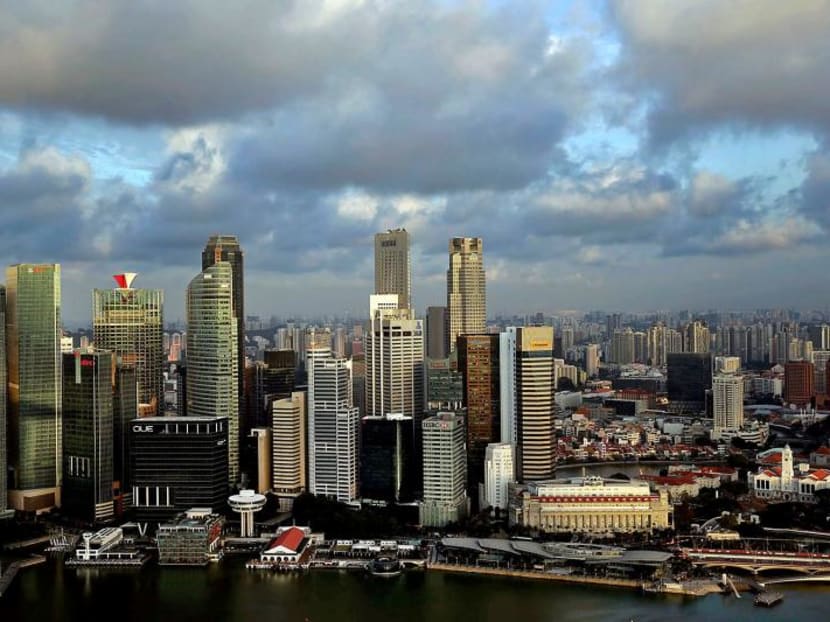Jobs Support Scheme more comprehensive than wage subsidies during Sars, 2008 crisis: MAS study
SINGAPORE — The current wage subsidy scheme to help companies through the Covid-19 pandemic is more sizeable, timely and effective compared with those introduced in past crises, based on a study done by the Monetary Authority of Singapore (MAS).

The Jobs Support Scheme, which offers wage subsidies to employers, is more comprehensive than wage support packages offered during two previous crises, the Monetary Authority of Singapore said.
SINGAPORE — The current wage subsidy scheme to help companies through the Covid-19 pandemic is more sizeable, timely and effective compared with those introduced in past crises, based on a study done by the Monetary Authority of Singapore (MAS).
Under the Jobs Support Scheme (JSS), the Government pays for 75 per cent of the first S$4,600 earned by all Singaporean workers in April and May.
The scheme will also subsidise at least 25 per cent of the wages of all Singaporean workers for seven other months — October to December 2019, and February, March, June and July 2020 — with higher subsidies for sectors more badly affected by the pandemic, such as aviation, tourism, and food and beverage.
In the study, the findings of which were released in MAS' latest macroeconomic review on Tuesday (April 28), the central bank compared the JSS with the Jobs Credit Scheme (JCS) introduced in 2009 in the aftermath of the global financial crisis, as well as measures announced during the crisis brought on by the outbreak of the severe acute respiratory syndrome (Sars) in 2003.
The JCS gave companies a 12 per cent cash grant for each resident worker’s wage, capped at S$2,500, for at least 12 months.
During the Sars crisis, the Government cut employers’ Central Provident Fund (CPF) contribution rate by 3 percentage points for at least 12 months as a cost-saving measure.
MAS looked at three factors — the quantum of wage support, timeliness and how targeted the schemes are — to make its comparisons.
It said these three factors would help minimise firm closures and slow the rise in unemployment.
QUANTUM
The central bank said companies were, on average, getting a 38.6 per cent monthly subsidy of their employee wage bill for April and May, and a 17.5 per cent monthly subsidy for the other months covered by the JSS.
In comparison, the effective monthly subsidy from the JCS was 6.4 per cent, while the cut in employers’ CPF contributions introduced during Sars amounted to a 2.3 per cent monthly subsidy.
On an annual basis, companies are effectively getting a 14.9 per cent subsidy on their wage bill for the whole of 2020, MAS said. This is also higher than the effective annual subsidy of 6.4 per cent offered by the JCS in 2009 and 2.3 per cent from the CPF rate cut during Sars.
TIMING
MAS said that wage subsidies need to be disbursed when problems are most severe for them to be effective.
The CPF cut was rolled out in October 2003, during a quarter that saw gross domestic product (GDP) growing by 2.83 per cent from the previous quarter.
But the economy was at its worst in June that year, when growth was negative, suggesting that help was disbursed only when the economy was already recovering, noted MAS.
As for the JCS, the first payment to businesses under the scheme was made in March 2009, about six months before the economy hit its worst point.
“This suggests that the JCS was implemented in time to help cushion the impact of revenue contractions and ease liquidity constraints,” MAS said.
While it cannot be determined when Singapore’s economy will be at its worst during the Covid-19 pandemic, MAS said that the first JSS payout in April 2020 will be made after Singapore’s economy contracted sharply in the first quarter of this year, based on preliminary data.
The data has already shown that Covid-19 has had an impact on the revenues of companies, which will worsen in April and May because of the circuit breaker restrictions that began on April 7 to slow the spread of the disease. These restrictions are expected to last till June 1.
“The enhanced JSS disbursement in April, May and subsequent months will likely prove to be more timely than the CPF contribution cut and almost as timely as the JCS in alleviating firms’ cash flow bottlenecks,” said MAS.
EFFECTIVENESS
MAS said that to be effective, a wage support scheme should grant proportionately larger wage subsidies to firms most affected during downturns.
“The JSS differs from the other two wage support schemes in that ex-ante, it was evident that the Covid-19 (outbreak) would impact certain sectors much faster and by much more than others — aviation and tourism, and to a lesser extent, food and beverage,” MAS said.
Beyond the circuit breaker months, the aviation and tourism-related sectors will get 75 per cent of wage subsidies, while food services will receive 50 per cent. The rest will get 25 per cent.
Thus, the JSS allows for sectoral differentiation even while providing the broader economy with meaningful support, MAS said.











